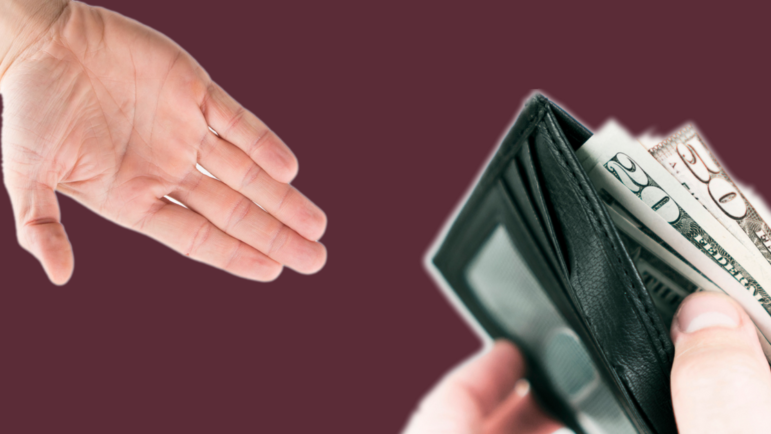What do hospitals do when patients can’t pay their medical bills? One quarter of American families report having trouble paying their medical bills, and even patients with insurance struggle with paying out-of-pocket costs. While many patients engage in crowdfunding or sacrifice household necessities to pay medical bills, others may not be able to raise the money, and they leave medical bills unpaid.
Hospitals may try to negotiate a lower bill with patients, offer financial assistance, send the bill to a collection agency, or write off unpaid costs as “bad debt.” However, many hospitals go a step further and sue patients for the unpaid bill, eventually garnishing (taking a cut) of their wages or bank savings. Although most of these unpaid bills are a few thousand dollars, the effect on families can be crushing. “I literally have no food in my house because they’re garnishing my check,” said Daisha Smith, who was sued by Mary Washington hospital for an unpaid medical bill, in NPR. Many patients do not even know they have been sued until they discover part of their paycheck is going missing.
How prevalent is the practice of suing patients for unpaid bills, and which hospitals are doing it the most? In a recent research letter in JAMA, researchers at the Johns Hopkins University School of Medicine analyzed court records in Virginia for 2017 to find out how often hospitals were suing patients. They found that hospitals sued patients about 20,000 times in 2017 and garnished their wages more than 9,000 times.
Surprisingly, nonprofit hospitals were much more likely to garnish wages compared to for-profit hospitals; 43 percent of non-profit hospitals garnished wages compared to 33 percent of for-profits and 6% of government-owned hospitals. Out of all the Virginia hospitals that garnished wages in 2017, 71 percent were non-profits. There were a few particularly bad offenders; just four nonprofit hospitals (including Mary Washington hospital) accounted for over half of all lawsuits in Virginia in 2017.
The disproportionate role of non-profit hospitals in garnishing wages is especially disappointing because non-profit hospitals receive significant tax benefits for providing benefits to the community, including financial aid and charity care. As Dr. Martin Makary, one of the co-authors of the research letter, said in NPR, non-profit hospitals are supposed to be a “safe haven for people regardless of one’s race, creed or ability to pay.” When a nonprofit hospital uses its power to impose a financial burden on families that can’t afford to pay medical bills, “it’s a disgrace,” said Makary.
